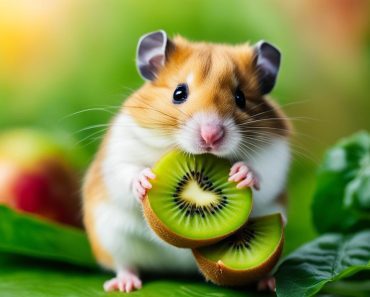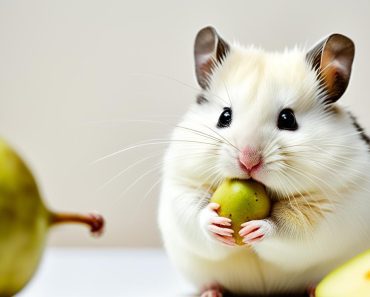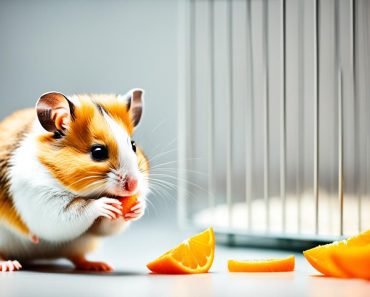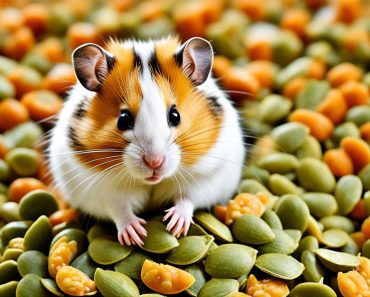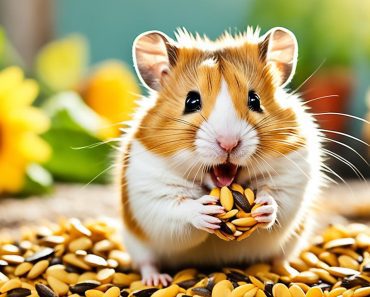When it comes to feeding our furry friends, we want to ensure they have a balanced diet that keeps them healthy and happy. As a hamster owner, you may be wondering: can hamsters eat spinach? Is it a safe and nutritious option for your little companion? Well, I’m here to shed some light on the subject!
Spinach is indeed a leafy green vegetable that can be included in a hamster’s diet. It is packed with essential nutrients like vitamins A, C, and K, as well as iron and fiber. However, it’s important to remember that spinach should not be the only source of nutrition for your hamster. It should be offered in moderation as a treat or supplement to a well-rounded diet.
Can Hamsters Eat Spinach? The short answer – yes, they can!
- Spinach can be safely consumed by hamsters as part of a balanced diet.
- It is rich in vitamins A, C, and K, iron, and fiber.
- Spinach should be offered in moderation and not be the sole source of nutrition.
- Introduce spinach gradually and monitor your hamster for any adverse reactions.
- Consult with a veterinarian to ensure your hamster’s specific dietary needs are met.
Benefits of Spinach for Hamsters
Spinach offers numerous benefits for hamsters, thanks to its rich nutritional profile. This leafy green vegetable is packed with vitamins and minerals that contribute to the overall health and well-being of your furry friend.
One of the key benefits of spinach for hamsters is its high content of vitamins A and C. These vitamins are essential for supporting good eye health, strengthening the immune system, and promoting overall vitality. By incorporating spinach into your hamster’s diet, you can help ensure that they receive these important vitamins on a regular basis.
In addition to vitamins, spinach is also a good source of minerals that are vital for your hamster’s health. It contains iron, which supports healthy blood function, and calcium, which contributes to strong bones and teeth. By including spinach in your hamster’s diet, you are providing them with these essential minerals that they need for proper growth and development.
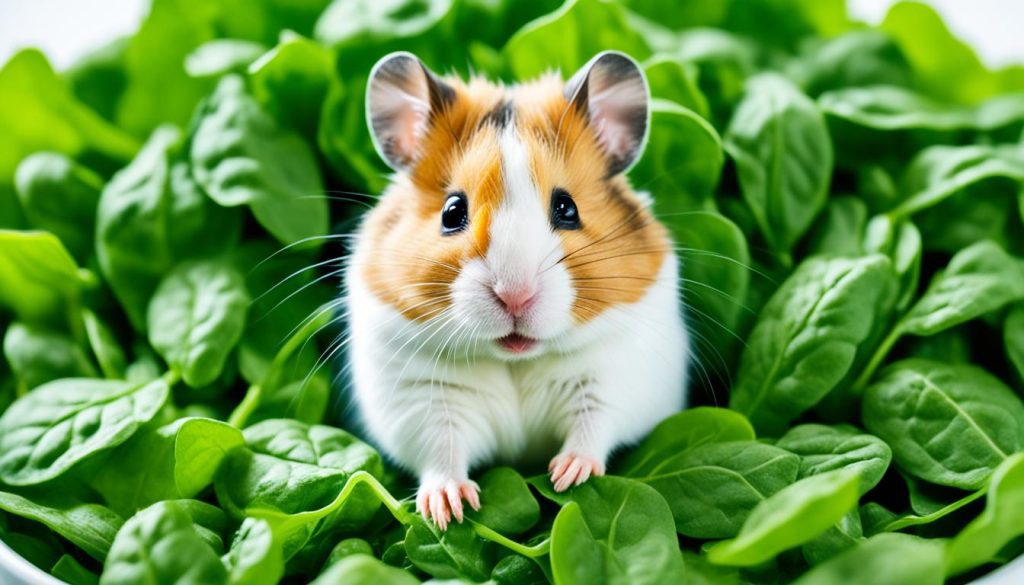
Adding Variety to the Diet
Introducing spinach into your hamster’s diet allows for variety and enrichment. Along with other safe vegetables and hamster pellets, spinach can give your pet a more diverse diet, ensuring they get a range of nutrients.
However, it’s important to keep in mind that while spinach is beneficial, it should be offered in moderation. Hamsters have specific dietary requirements, and spinach should not be the sole source of their nutrition. It should be served as a supplement or occasional treat, alongside a balanced diet that includes other appropriate foods.
Always consult with a veterinarian to ensure that you are providing the right amount of spinach and other foods for your hamster’s specific needs. With careful planning and consideration, you can incorporate spinach into your hamster’s diet to support their overall health and well-being.
Feeding Spinach to Hamsters Safely
When it comes to feeding spinach to your hamsters, safety is paramount. Spinach should be offered in small quantities as a treat or supplement to their regular diet. It is important to introduce spinach gradually, starting with small pieces, to ensure that your hamster tolerates it well.
Before giving spinach to your hamster, it is crucial to thoroughly wash the spinach leaves to remove any potential pesticides or dirt. Ensuring the cleanliness of the spinach will help minimize the risk of digestive issues and promote the overall health of your hamster.
As with any new food, it is essential to monitor your hamster for any adverse reactions. Keep an eye out for signs of digestive upset or allergies, such as diarrhea, vomiting, or changes in behavior. If you notice any of these symptoms, discontinue feeding spinach to your hamster and consult a veterinarian.
Remember, spinach should never be the main source of nutrition for your hamster. It should be given in safe amounts, complemented by a balanced diet consisting of hamster pellets and other suitable vegetables. By following these guidelines, you can ensure that your hamster enjoys the nutritional benefits of spinach while minimizing any potential risks.
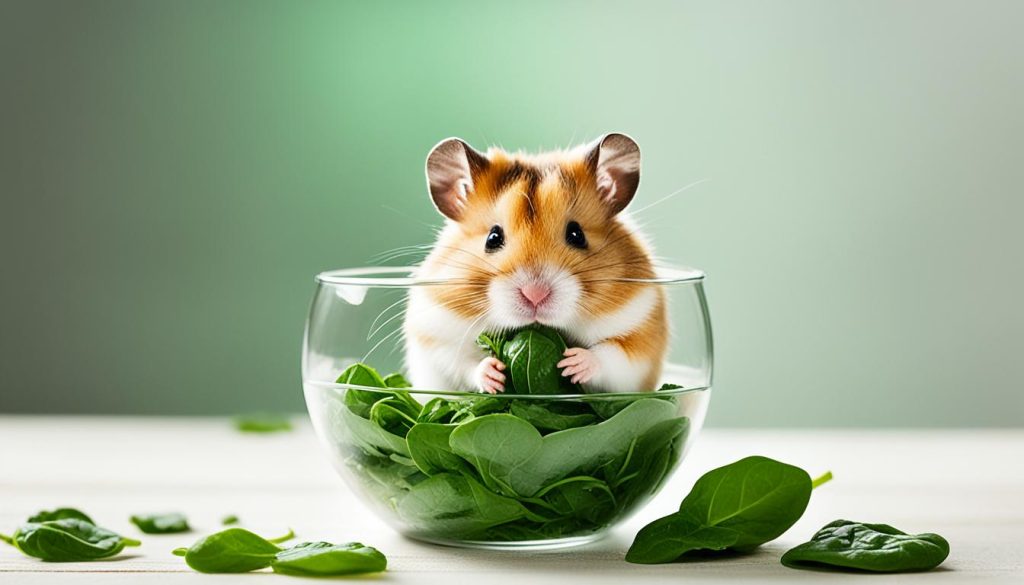
Other Leafy Greens for Hamsters
While spinach can be a nutritious addition to a hamster’s diet, there are also other safe leafy greens that can provide variety and essential nutrients. Including a mix of greens in your hamster’s diet ensures they receive a well-rounded and balanced nutrition.
Some alternatives to spinach that you can offer to your hamster include:
- Romaine Lettuce: This leafy green is low in calories and high in fiber, making it a great option for promoting digestion in hamsters.
- Kale: Rich in vitamins A and C, kale can support your hamster’s immune system and contribute to overall well-being.
- Swiss Chard: Packed with antioxidants, minerals, and vitamins, Swiss chard is a nutritious green option for your hamster’s diet.
- Arugula: This peppery green offers a unique flavor and is a good source of calcium, which is essential for maintaining strong bones in hamsters.
When introducing new leafy greens to your hamster, it is important to do so gradually. Start by offering small amounts of the new greens and observe your hamster’s response. If they tolerate the greens well, you can gradually increase the portion size.
Remember to provide a balanced diet for your hamster, including hamster pellets, fresh water, and a mix of safe vegetables. Offering a variety of leafy greens ensures that your hamster receives the necessary nutrients to thrive and stay healthy.
Conclusion
Spinach can be a healthy addition to a hamster’s diet as a treat or supplement. However, it should not be the main source of nutrition. A balanced diet is crucial for hamsters, and it should primarily consist of hamster pellets along with a variety of safe vegetables, including spinach.
Feeding spinach to hamsters should be done in moderation to avoid any potential digestive issues. It’s important to monitor your hamster’s reaction to spinach and consult with a veterinarian to determine the specific dietary needs of your furry friend.
Remember, a hamster’s diet should be well-rounded and include a mix of nutrients for optimal health. By offering a balanced nutrition plan that includes hamster pellets, fresh water, and an assortment of safe vegetables, including spinach, you can ensure your hamster receives the necessary vitamins and minerals to thrive.

